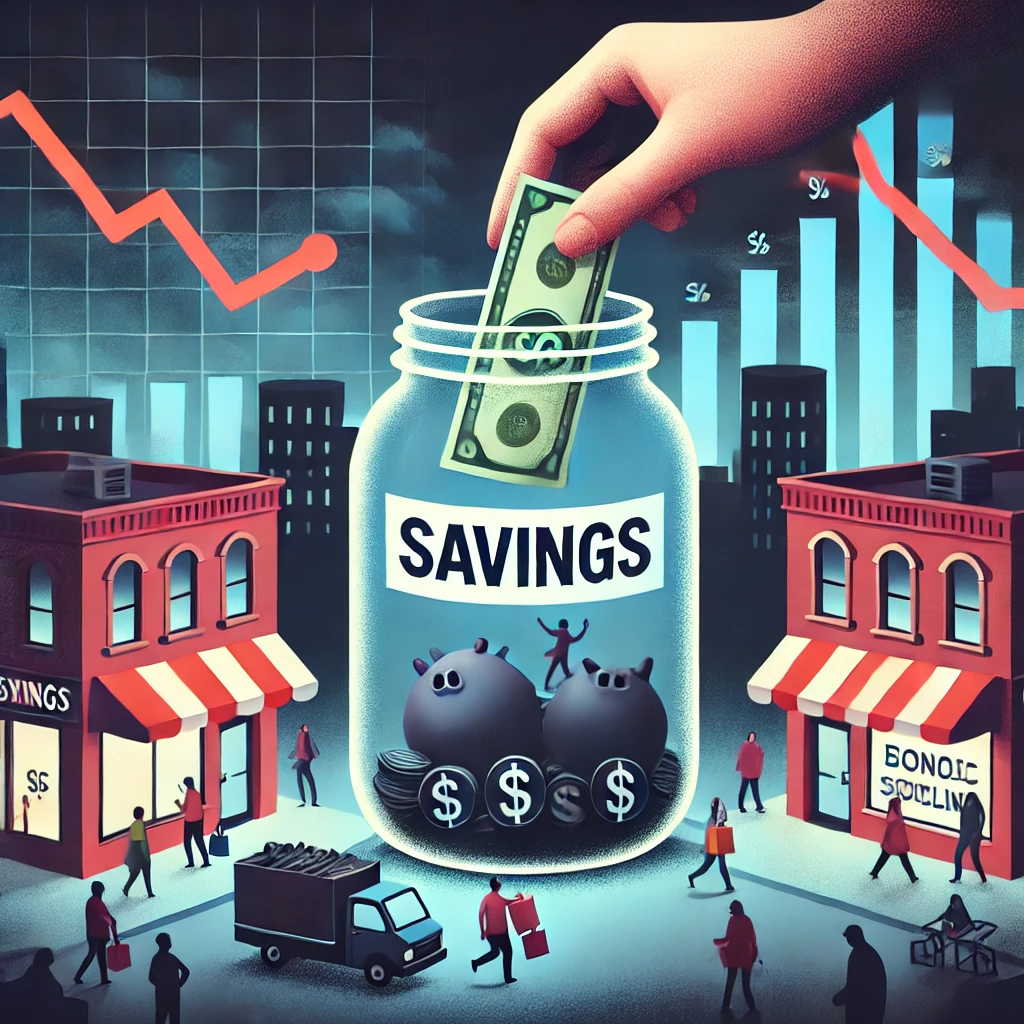
The paradox of saving. Why can saving too much harm the economy?
Mike MunayShare
The paradox of saving: When saving for the future ruins the present
Saving is wise. That's what we're told from a young age. That we have to save for a rainy day, that we can't live day to day, that we have to think about the future. And all of that is true... until everyone does it at the same time.
Because then, the result could be that we all end up saving less, since excessive savings can generate an economic crisis, and therefore, make us have less money.
Money is energy, it needs to move for the system to work.
Individual reasoning makes sense… Imagine you watch the news and everything looks bad: the economy is unstable, there are layoffs, inflation is yo-yoing, and so you decide to cut back on spending. Less dining out, no more indulgences, and that summer trip… well, maybe. The logical thing to do: spend less to save more.
The problem comes when you're not the only one who notices. Everyone around you thinks the same, and then no one buys, no one spends, no one invests, and the collective effect is disastrous.
This is where the chain reaction begins when everyone goes into “ant” mode at the same time:
- Companies sell less
- By selling less and having more expenses than income, they cut production.
- As they cut production, they lay off employees.
- The unemployed spend their savings to survive.
- The government loses money on unemployment benefits, so it raises taxes to collect more.
- Working people are becoming poorer, and people with savings are also being attacked by the tax increase.
- Result: An economic crisis, no one with money, liquidity problems in companies, and difficulty in generating employment and getting back on track.
The master stroke: this collective desire to save more has ended up resulting in less money to save.
What the hell happened here?
What's happened is that one person's spending is another person's income. In other words, if you stop going to the bar, the waiter gets paid less. If no one buys clothes, the store closes. If no one renovates the house, the bricklayer loses his job. And so, like dominoes, the system cools down. And when it cools down, the economy contracts. That's called a recession. And recessions, in case you were wondering, aren't exactly good for savings.
John Maynard Keynes, the British economist with the appearance of a Hogwarts professor who revolutionized economics in the 20th century, already realized this, when the economy was not as complex or advanced as it is today, nor the world as globalized.
In his work, he commented on these aspects and developed his own theory for getting out of economic recessions, of course by getting money moving.
For Keynes, in an economic recession, what's needed isn't more saving, but more spending, or at least, someone spending big. He proposed that the state be the one to make the economic disbursement through public investment, because if no one moves the money, people's incomes decline, and without income, no economy can survive.
So saving is bad? No, don't worry! Saving is good and necessary, but you have to do it right.
Like everything in economics, context matters. In a stable or growing economy, saving means investing: putting your money in the bank, a fund, or a company. That gets the wheels turning. But in the midst of an economic storm, if everyone hunkers down, the ship sinks faster.
There are many ways to save, and the smartest way, both for each individual and for the economy as a whole, is through investments in assets that grow your capital. Leaving your savings static is increasingly less effective; inflation is increasing, as are taxes on savings, so leaving your money sitting still only causes you to have less and less money.
Moral: Saving is good, but if everyone tightens their belts at the same time, there won't even be enough money to buy a pair of pants.

3 comments
Milton fridman es contrario a los keynesianos , considera que no debe haber intervención estatal , ni sobre oferta monetaria , el mercado debe regularse básicamente con la inversión privada .
Gracias por el artículo, quien diría que desde ese ángulo las cosas tienen mucho sentido. Pues como todo en la vida, todo debe ser a su medida,ni más ni menos,👌. Y lo más importante, hay que VIVIR y disfrutar del tiempo que nos puede sorprender 😜👌. Buen artículo chicos.
Gracias por el artículo, quien diría que desde ese ángulo las cosas tienen mucho sentido. Pues como todo en la vida, todo debe ser a su medida,ni más ni menos,👌. Y lo más importante, hay que VIVIR y disfrutar del tiempo que nos puede sorprender 😜👌. Buen artículo chicos.